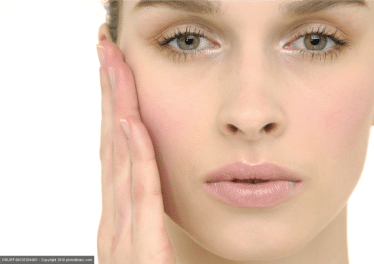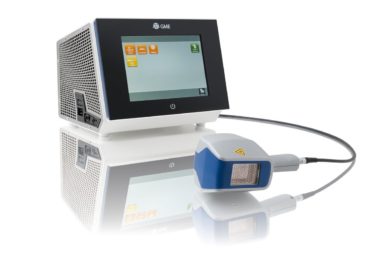Psoriasis

Dr Sagoo, one of the leading cosmetic doctors in the UK, is proud to be the first and only doctor in the UK to offer the latest laser in the world, which may help to improve the appearance of people with vitiligo, psoriasis, alopecia areata, resistant dermatitis, acne, and other inflammatory skin conditions that do not respond to conventional treatments.
We introduce to you the ExSys Excimer laser. Having undergone speciality training in Germany with leading world-renowned experts in vitiligo, Dr Sagoo can now exclusively offer the excimer laser to patients at the Solihull Medical Cosmetic Clinic, the No 1 clinic in the Midlands.

Excimer Exsys laser 308 nm for Psoriasis
The ExSys Excimer Laser 308 nm offers a revolutionary new treatment that may improve the appearance of patients suffering from vitiligo, eczema and psoriasis. This laser uses a carefully focused beam of light delivered through a sophisticated fibre optic device. The Excimer system allows the practitioner to use the high doses of UVB light necessary for the treatment of the eczematous patches, whilst minimizing the risk of exposure to healthy skin. For patients with resistant eczema, treatment with this new laser is quick, painless, and often effective. Patients may see improvement of their skin in just four to eight brief sessions, compared to 25 to 30 treatments with conventional phototherapy. Remissions may often last months.
-
What is Psoriasis?
Psoriasis is a non-contagious, inherited skin disease caused by an overactive immune system that stimulates a higher-than-normal turnover of skin cells. This results in recurring red plaques with silvery scales, on either localized or generally dispersed regions of the skin. A very difficult disease to treat, psoriasis often causes shame, embarrassment, and humiliation to individuals, and sometimes lasts throughout their entire lifetime.
-
What Does Psoriasis Look Like?
Psoriasis is characterized by salmon-pink, round, well-bordered bumps and plaques with silvery scales on their outer layer. Psoriasis plaques can either itch or feel sore. The scales are loose and easily removed by scratching, which often results in minor bleeding. Psoriasis may be localized to one area such as the nails or genitals, dispersed to an entire region such as the scalp, or universally distributed to the skin throughout the entire body. Common areas include the elbows, knees, palms, shins, nails, arches of feet, lower back, genitals, and anal folds. Psoriasis may also cause a type of arthritis called “Psoriatic Arthritis” with joint pain, weakness, chills, and fever. Without early recognition and treatment, psoriatic arthritis can potentially be disabling and crippling.
-
Who Does Psoriasis Affect?
Psoriasis can begin at all ages, but most commonly begins near or around two age peaks of 23 years and 55 years, and occurs equally among males and females. Smoking and obesity also appear to be associated with psoriasis, though the cause and effect relationship is not clear.
-
What Causes Psoriasis?
Psoriasis begins in the immune system. For reasons yet unknown, T cells are mistakenly activated and begin signalling skin cells to shorten their normal cell cycle duration. This causes a much faster turnover of skin cells and an increase of up to 30 times the normal production. Swelling and inflammation ensue. The long-term result is a significant reddening, thickening and scaling of the affected region.
-
What Triggers Psoriasis?
Certain triggers may exacerbate pre-existing psoriasis plaques, or cause a sudden onset of plaques, especially in areas that have been affected once before. These factors include physical trauma such as rubbing and scratching, bacterial infections, alcohol consumption, smoking, stress, weather changes, dry climates, or certain medicines.
-
How Can My Psoriasis Be Treated?
Although management and control of psoriasis is very difficult, it is possible and can be attained with a well-planned treatment regimen. Phototherapy for psoriasis in the form of narrow-band UVB phototherapy may help to improve large areas of the skin without the side effects of oral or topical medications.
The Exsys Excimer laser has been successful in treating psoriasis for many patients. The excimer 308 nm laser uses a carefully focused beam of narrow-band UVB light delivered through a sophisticated fibre optic device and allows higher doses of narrow-band UVB light with minimal exposure of nearby, healthy skin.

